I view journalists as the honesty police. It’s our job to tell people’s truths and reveal any lies the powers that be may tell.
Lately, I’ve been wondering if I’m the liar.
I’m in the midst of trying to achieve my dream of becoming a broadcast journalist by getting my master’s degree at the University of Maryland.
Shortly after I started classes in June, a classmate noticed something about me that I had begun to think might jeopardize that career — my accent.
She did it kindly, but it resurrected worries I’ve long held about the Jamaican lilt that makes me feel a part of something back home, but separate here.
I thought about the long hard road to getting a job in broadcasting. And right then and there, I switched my accent to an American one.
——————-
I grew up in Kingston, the capital of Jamaica. My mother was a former Olympic track star-turned educator and my father was in the Jamaican army and
later had a career in security. They raised my brother and me in a home full of light and fresh air. Even on the most sweltering days in Kingston, there was always a deep breeze to provide some relief. We played outdoors a lot.
I enrolled in a boarding school on scholarship in Alexandria, VA, when I was 14. My parents and I thought my best chance for success would be the education system in America.
I quickly realized that my accent was the one thing that everyone noticed about me. One day, I answered a question in class and a boy said, loud enough for everyone to hear, “What did you even say?” Six weeks into the semester, I got tired of the struggle.
I spent a lot of time listening, carefully copying the tone and timbre of my classmates’ speech. It wasn’t easy at first. I knew to ask for “badder-ees” instead of “batch-rys,” and not to ask people to “lock off the lights,” but to “turn them off.” As it turns out, I began to sound like an American with a Southern tinge, as many of my classmates were from southern states.
And then, people stopped asking where I was from and stopped repeating words I’d said. I was like everybody else. I became captain of the track team, president of the diversity club. I embraced American culture. Friends invited me home during breaks. I spent Thanksgivings on my friends’ ranches in the American countryside.
On Christmas breaks, I flew back to Kingston, where it would take a day or two to switch back to my Jamaican way of speaking.
My friends and family at home often accused me of “twanging,” a term they use to describe someone from Jamaica who goes somewhere else and tries to take on a new accent, which was exactly what I had been doing. I’m keenly aware they don’t approve; that term is especially used if you pick up the new accent poorly.
I can’t tell you how many times I’ve heard people laugh at Jamaica’s Usain Bolt, a sprinter often referred to as the “world’s fastest man,” and others, for switching their accents in interviews, while commending people such as Tessanne Chin, the winner of season five of the TV show “The Voice,” for keeping their accents and staying “authentic.”
I have to imagine that Bolt understands, like I do, that people may sometimes pay attention to the wrong part of you if you don’t make the switch.
—————————
Still, I’m conflicted about whether I want to say good-bye completely to the accent I associate with my culture and past.
Part of what makes me unique is that I’m Jamaican. You can’t look at me and know. My accent is the first thing that tells the story. There are days when I wake up and I just want to sound like myself, and depending on to whom I’m talking, sometimes I just let it come out.
The debate in my head came to the forefront this summer when I enrolled in graduate school for journalism at the University of Maryland.
After studying creative writing and film at the University of Miami, where I have a bachelor’s degree, I decided to get serious about pursuing a broadcast journalism career so that I could fulfill my goal of spending my life telling people’s stories.
I know it’s not an easy industry to break into. But still, when classes started, I experimented with using my accent from home. Why did I do it? It was mostly because I’d been in Jamaica a lot the previous year. But there was another reason, too — I’m still proud of where I’m from and I had outgrown the desire to be like everyone else.
People noticed right away. There was nothing subtle about it and the comments quickly came. I even got a compliment on how well I spoke English — a comment that often offends me since English it is my first language.
So I gave it up. Again. This time, it was about more than just fitting in. Will it hinder me from effectively communicating other people’s truths? I just don’t know if I want to take that risk, especially before I’m established.
It has also been my experience — and I’m guilty of this myself — that when people hear an accent, they make automatic assumptions about your background, upbringing and intelligence level. Unfortunately, these assumptions aren’t usually favorable.
(If you’re curious to know how I sound, here is an advertising clip in my Jamaican accent and a news story done in my American accent.)
I decided to ask my friends and mentors what they thought. Was I a sell out? Or worse, somehow ashamed of my culture?
Jamaicans are really proud of being Jamaican.
“Speaking as a practitioner (of journalism), I don’t think I could classify you as a sell out,” said Maia Chung, a mentor from Jamaica who works in the advertising industry. “Your mission is to communicate and you have to use the methodology of the particular context.”
She added that even in print journalism, there are often house style guidelines journalists must follow. It doesn’t diminish your culture or beliefs to adopt a style, said Chung.
I also spoke to Rafael Lorente, my first journalism professor at the University of Maryland.
“If I’m going to go become a broadcaster in Latin America, my Spanish better be clear to Latin-Americans because that’s my audience,” he said.
As I kept talking to people in my industry, I began to think this was about more than just my accent. It extends to a larger question in journalism: Do you have to change your culture to be a mainstream broadcaster? What if your culture and heritage is on your face, because you’re Asian, or what if it’s your hijab if you’re Muslim?
Some journalists have taken their determination to fit in farther than changing their vocal intonations.
In September 2013, Julie Chen, an Asian-American producer and news anchor, confessed to getting surgery to make her eyes seem bigger and “less Asian” when a news director said her Chinese heritage would bar her from making it in the broadcast industry. She said she stood by her decision and probably wouldn’t have made it in broadcasting if she hadn’t had the surgery.
“I will say, after I had that done, the ball did roll for me, which I struggle with. You know, wow, did I give in to ‘the man’ and do this?” Chen said during a 2013 segment on The Talk, a CBS daytime talk show where she serves as host and moderator.
Closer to home, Noor Tagouri, a recent broadcast journalism graduate from the University of Maryland, is also talking publicly about cultural struggles amid her dreams of becoming a broadcaster.
Tagouri, now 20, made waves when she was 18 and posted a picture of herself on Facebook that went viral. She was wearing a Muslim hijab sitting at an anchor’s desk with the tagline:
“This is a picture of my dream,” she wrote. “Becoming the first Muslim (hijabi) woman news anchor on American television.”
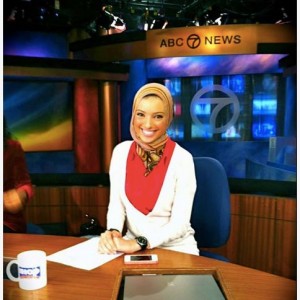
Broadcast journalist and motivational speaker Noor Tagouri, in a picture she posted on Facebook in October of 2012.
In an interview, Noor was adamant that we shouldn’t have to change for the industry.
“I really don’t believe in the fact that we have to succumb to what people want from us all the time,” she said. “We have to come along and change the industry because the industry is not perfect.”
She said that my accent, just like her hijab, shows that we bring something else to the table. When people hear it, they know that I have experience with a different culture and religion, Noor said.
“If you want to (be a journalist) fairly, you have to stay true to who you are,” she said. “That means that, yes, there are going to be news directors who don’t want to hire you, just like there are news directors that are not going to hire me, but that’s on them.”
What she said next gave me a lot to think about:
“We have to remember what our mission is by becoming storytellers. If our mission is to give a voice to the voiceless and to tell stories correctly, our mission isn’t to become what mainstream wants us to be. Our mission is to make them accept who our nation consists of anyway.”
——————————
I decided to also talk to a fellow student in my journalism program, someone who is also from another country and is working toward becoming a journalist.
Sissy Cao, a native of China, is pragmatic.
“You have to make a compromise. It’s nice to think that we can overcome whatever cultural obstacle there is, but the reality is the majority defines the culture and as a young journalist, to enter the industry you have to follow the rules of the game.”
I thought back to my conversation with Chung, my mentor in Jamaica.
She said young people can carve a niche, but within the confines of the culture in which they find themselves.
“You have to adapt,” she said. “Be the best communicator you can be. Learn to speak in the context of your new culture first and then develop your style around it. That’s how we have trailblazers.”
Where does this leave me? I will most likely keep the American accent for broadcasting — and give up my Jamaican one, at least for now.
I want to be heard and understood and not have my work as a journalist overshadowed by either viewers’ assumptions about my heritage, or notions that I would favor the minority view simply because I am one.
But, it’s not easy. It’s a part of me I’d rather keep because some days my accent feels like it’s the deepest connection I have to home. I’m going to challenge myself to find other ways to display my culture. My parents made many sacrifices to get me to my dreams, so perhaps this is one of mine.




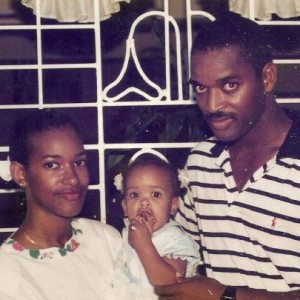
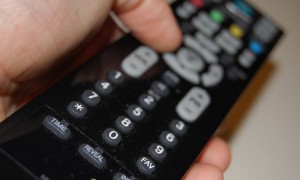
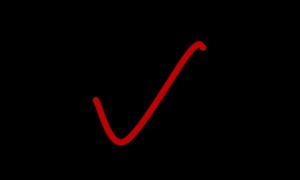


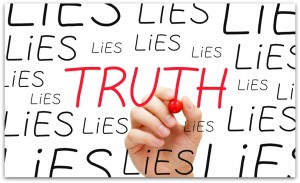
Leave a Comment